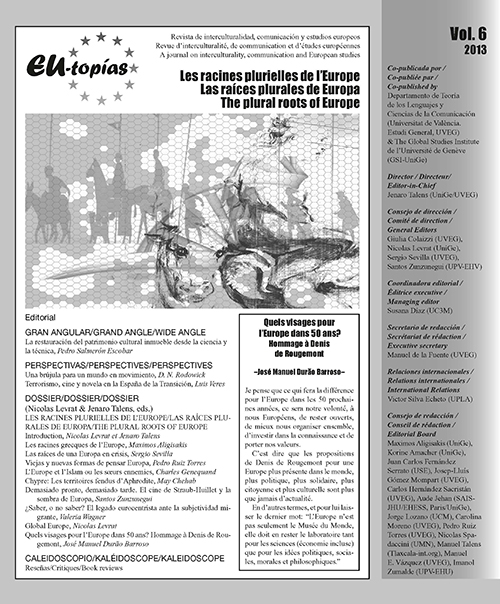Les racines plurielles de l'Europe. De la pertinence d'étudier aujourd'hui les racines de l'Europe
DOI:
https://doi.org/10.7203/eutopias.0.18881Keywords:
European Union, Historical and Cultural roots, CECA, CEE Abstract
Abstract
The European Union configuration process should not be seen as the path towards a homogeneous political entity but as an enhancement of the specificity of every village: the idea of «unity in diversity.» It is more productive both to identify and address these diversities than to find the features of historical trajectories converging at certain times. Thus, the use of the term «European roots» refers to the integration process that is changing the foundation of the Union construction’s first steps, since the roots strengthen the trunk (both botanical and cultural/political) while spreading along the surface, and resulting in new outbreaks.
 Downloads
Downloads
Downloads
Published
How to Cite
-
Abstract194
-
PDF (Français )58
Issue
Section
License
![]()
The authors conserve the copyright. All content published in EU-topías. Journal of interculturality, Communication, and European Studies are subject to the license Creative Commons Attribution-NonCommercial-ShareAlike 4.0 license. The full text of the license can be found at <http://creativecommons.org/licenses/by-nc-sa/4.0>
They may be copied, used, disseminated, transmitted and publicly displayed, provided that:
- The authorship and original source of the publication is cited (journal, publisher and URL of the work).
- They are not used for commercial purposes.
- The existence and specifications of this license of use are mentioned.
It is the responsibility of the authors to obtain the necessary permissions for images that are subject to copyright.



